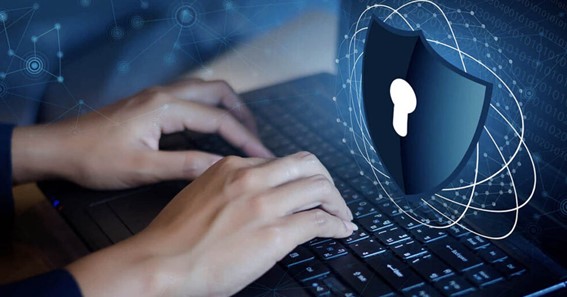Today, a massive chunk of the global population relies on modern technology, software, and other web-based applications to simplify human life. Laptops are one of the popular device categories that we use today. It is also possible that you are reading this article using your laptop.
We use these devices to search for information on the internet, shop on various eCommerce platforms, complete financial transactions, manage our businesses, interact with family and friends, etc. As such, laptops hold a wealth of personal information, sensitive and monetary records. We need to protect this type of information as much as we can. If your laptop is not adequately protected, thieves and hackers could easily access it and steal sensitive information.
But most owners do not know some of the methods to protect their laptops from cyber-attacks. This article discusses the various techniques you can use to protect your laptop from attacks. This article is also relevant for desktops, tablets, computers, smartphones, and other devices as these tips apply across all these platforms.
click here – Everything You Need To Know Regarding Gluconite
- Know the cybersecurity threats that your laptop is Vulnerable to
Your laptop is vulnerable to various security threats causing the cyber attack. The best defensive strategy requires understanding the threats that could hit your laptop. The first obvious security threat is theft or loss. We know laptops for their compactness and portability traits. Unfortunately, these traits also make them easy to be stolen. For example, a data thief can easily pick up your laptop from a coffee table and compromise your data.
Insider threats could also affect your laptop. While most people secure their devices from outsiders, statistics point out an increase in the rate of insider threats. In addition, computer malware, spyware threats, hackers and predators, and phishing attacks are also common threats laptop owners face today. Knowing how these threats work and how they could infiltrate your network will put you in a good position to lay out a working defensive strategy.
- Be Careful About What You Click and Websites You Visit
A phishing attack is a popular trick hackers use to send a seemingly genuine message to trick you into sharing vital information. Phishing attacks are becoming more sophisticated and prevalent, and laptop owners are not spared their wrath.
Phishing messages usually carry a sense of urgency. For instance, you may receive a message informing you that your bank account has been locked, and you are required to enter a password to unlock it. Always be keen on such messages as they might be phishing schemes.
More importantly, never click on HTTP websites. Instead, stick to HTTPS websites. Phishing attackers tend to use HTTP websites. The major difference between the two is that HTTPS has an SSL certificate that will encrypt your communication, covering it from intruders and prying eyes. With so many cheap SSL certificate options, such as low priced or cheap Comodo Multi-domain SSL, RapidSSL certificate, GeoTrust SSL, you can secure your website, and any genuine website has no reason to leave its customers’ data open to hackers.
click here – How Do Professionals Manage Time With Their Online Study Schedule?
- Keep Everything Up to Date
A crucial tip to keeping secure your laptop from cyber attacks is to keep everything up to date. Your laptop’s operating system, web browsers, applications, and software running on your website should all be regularly updated. In addition, you can leverage the automatic update feature to save yourself from the troubles of manual updates.
Updating everything on your laptop is vital as it helps to eliminate security flaws that give hackers a way into your system to steal data and compromise your sensitive information. Updates also come with improved security features that will help protect your laptop from cyber attacks.
- Use Antivirus Software
Installing antivirus software on your laptop is essential. It protects your device from a laptop from harmful viruses that could potentially destroy your sensitive information, reduce your laptop’s functionality or completely crash your device. In addition, antivirus software will help scan incoming files and attachments from emails. Most viruses and malware are distributed through systems using emails. According to the 2018 Verizon report, 92.4% of malware and viruses are spread to laptops using email attachments. Antivirus software will help to scan, detect, and eliminate such viruses.
It is also crucial to keep your antivirus software updated to effectively deal with the latest bugs. Moreover, you must ensure that your antivirus software is constantly running to keep track of all activities on your laptop.
- Use Firewall Protection
A firewall application is software that will block harmful traffic or hackers from reaching your laptop. It acts like a real firewall that prevents fire from spreading to other building parts. In addition, it will prevent communication or transactions with malicious sources that could potentially harm your laptop.
https://www.idginsiderpro.com/article/3409084/the-role-of-next-gen-firewalls-in-an-evolving-security-architecture.html
You need a firewall, especially if you have a high-speed internet connection. Some modern operating systems come with built-in firewalls capable of being shipped in the “off” mode. Ensure that you turn on your firewall. You must also ensure you configure the application properly. The firewall application should also be updated regularly to ensure it is suitable to deal with current traffic threats.
- Use Strong Authentication
Passwords are the basic security protocol you must use to protect your device. In addition, your laptop and all accounts contained therein must be protected using strong authentication. Never use your laptop unsecured, as this will give hackers an easy time getting through your accounts. Most importantly, adhere to good password practices when creating a password for your device and its accounts.
Using strong and unique passwords is a must for your accounts. Strong passwords are those characterized by complexity and length. All your passwords should not go below eight characters in length. It is almost impossible for a hacker to guess a long password successfully. Additionally, blending characters when building passwords will make them stronger. Therefore, I recommend you feature special characters, numbers, and symbols when creating your passwords. It would also be best to avoid using obvious passwords such as your name or your pet’s name.
Other than using your password, you can also use extra authentication factors to strengthen your authentication process. For instance, you can apply the two-factor authentication procedures. The good thing with 2FA is that hackers cannot access the second authentication factor. So even after getting past your password, hackers will not access your account or device because they will lack the second authentication factor.
- Switch Off Your Laptop During Idle Time
Most people and organizations are all systems go. However, although this approach can help save time and speed up things, it could also bring many security vulnerabilities to your system. Being on makes your laptop more visible and an easy target for hackers. It is advised to switch off your laptop during idle hours, such as overnight and for long stretches, when you are not working. Shutting it down will break the connection a hacker has established, thereby disrupting any possible mischief.
- Backup Everything
Hackers are clever. They will always come up with new and sophisticated tricks to get into your laptop. These explained tips do not make you completely secure from hackers. They only reduce the threats of being hacked. You cannot afford to lose data and valuable information you have spent long hours of hard work creating. The best strategy is to have a reliable backup and restore plan. It will be your only saviour when things go south.
Backing up your data frequently minimizes the impact of a successful data breach. There are several data backup plans, but I highly recommend you leverage the cloud storage plan because it is more reliable and secure and saves disc space.
Conclusion
Your laptop carries sensitive information that is lucrative to cybercriminals, so it needs to be protected at all costs. This article has explained some of the most reliable tips you can use to protect your laptop from cyber attacks. These tips also apply to other devices such as desktops, tablets, and computers. You must adopt more than just one security measure. The more the security measures, the better you are equipped to protect your laptop from cybercriminals.









